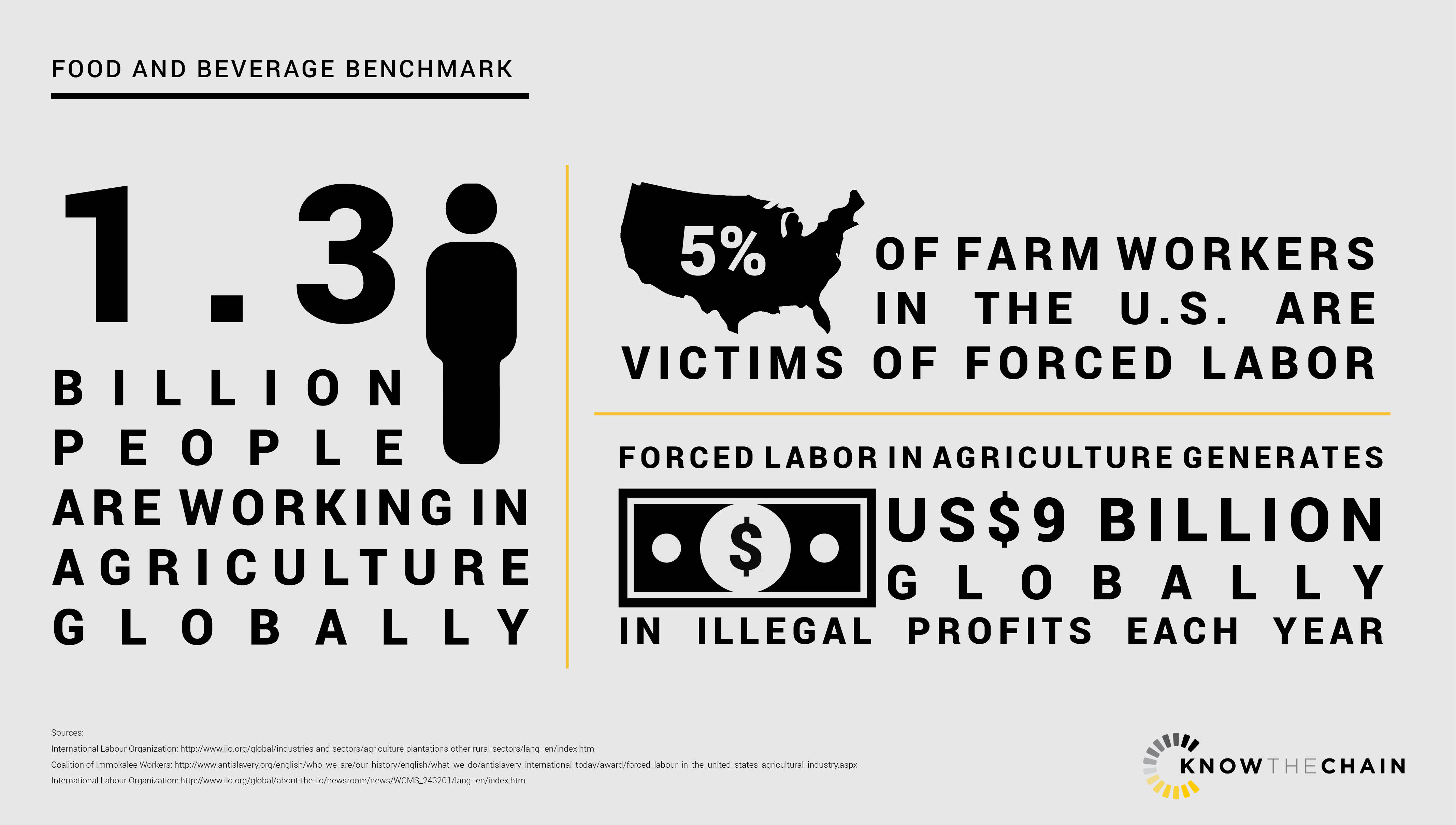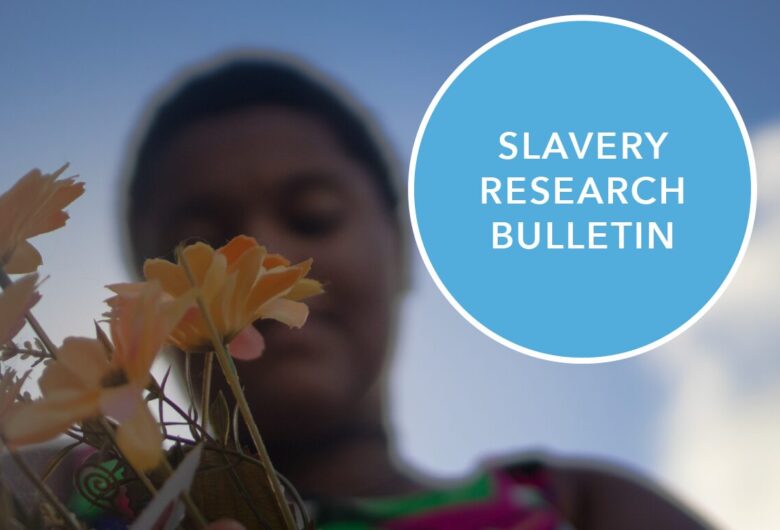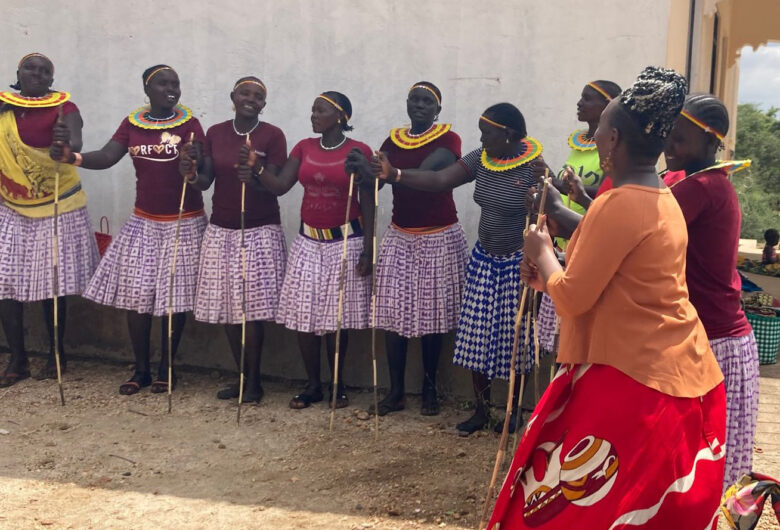KnowTheChain released its second benchmark report on 17 October, which ranks the 20 largest food and beverage companies on their efforts to address forced labour in their supply chains. The benchmark also highlights specific areas of improvement for companies and identifies leading practices and standards for companies to adopt.
Though the report shows that there is growing awareness surrounding the issue of forced labour, there is still far more to be done. The average score of all 20 companies that were ranked across seven measurement areas was 30/100, with 17 companies scoring less than 50 points.
Evidence of forced labour can be found in numerous commodities all over the world that are a part of the food and beverages we consume every day. These include rice from India, sugar from Brazil, and palm oil from Indonesia. While much of the recent media attention has focused on traditional source countries like Thailand – where Thai companies are not only facing scrutiny on using forced labour in its seafood industry, but also in poultry production, for which the European Union is the biggest export market – all countries are at risk. Western countries have been linked to using forced labour in food products such as strawberries from Germany, apples from the United Kingdom and tomatoes from the United States.
These examples make it clear that forced labour is an acute risk for food and beverage supply chains, regardless of what and where they source. The majority of food and beverage companies have begun tracing certain inputs in their supply chains; however, tracing efforts are limited in scope to a number of commodities. For example, over half of the companies ranked disclose tracing palm oil, with sugar, cocoa and soy also being mentioned. Food companies tend to source a large variety of products or commodities from many different countries, many of which may be linked to forced labour. In order to understand and ultimately address those forced labour risks, companies need to have a deeper understanding of the contexts from which they are sourcing.
Workers can easily fall victim to forced labour, especially women and migrants who are some of the most exploited workers in the world. Despite this reality, companies are falling short in their approach to recruitment processes. The average score in this area is 10/100. None of the companies evaluated require direct employment of workers in their supply chain. The dependence on subcontracted labour can increase a company’s risk that workers are being exploited through the recruitment process. Two leading companies, Unilever and Coca-Cola are active members of the “Leadership Group for Responsible Recruitment,” a collaboration between companies across sectors and expert organizations around the “employer pays principle”.
Other findings reveal an awareness of the importance of responsible purchasing practices, demonstrated by the majority of companies integrating labour standards and a prohibition on forced labour into their supplier contracts. However, this practice needs to be accompanied by purchasing practices that support and reward suppliers with strong labour practices. At the same time, farm workers in the agricultural sector often get paid low piece rates (i.e., pay is dependent on the number of buckets or bags of crops a worker harvests), and aggregators serve as middlemen which do not necessarily pass on profits to smallholders. To prevent situations of forced labour, companies can, for example, establish longer-term relationships with key suppliers, which include stable prices and supplier capacity building.
Download a PDF version of the report here
Download company scorecards here
Kilian Moote is the project director for KnowTheChain, a Humanity United project dedicated to helping businesses and investors understand and address labour abuses within their supply chains.



